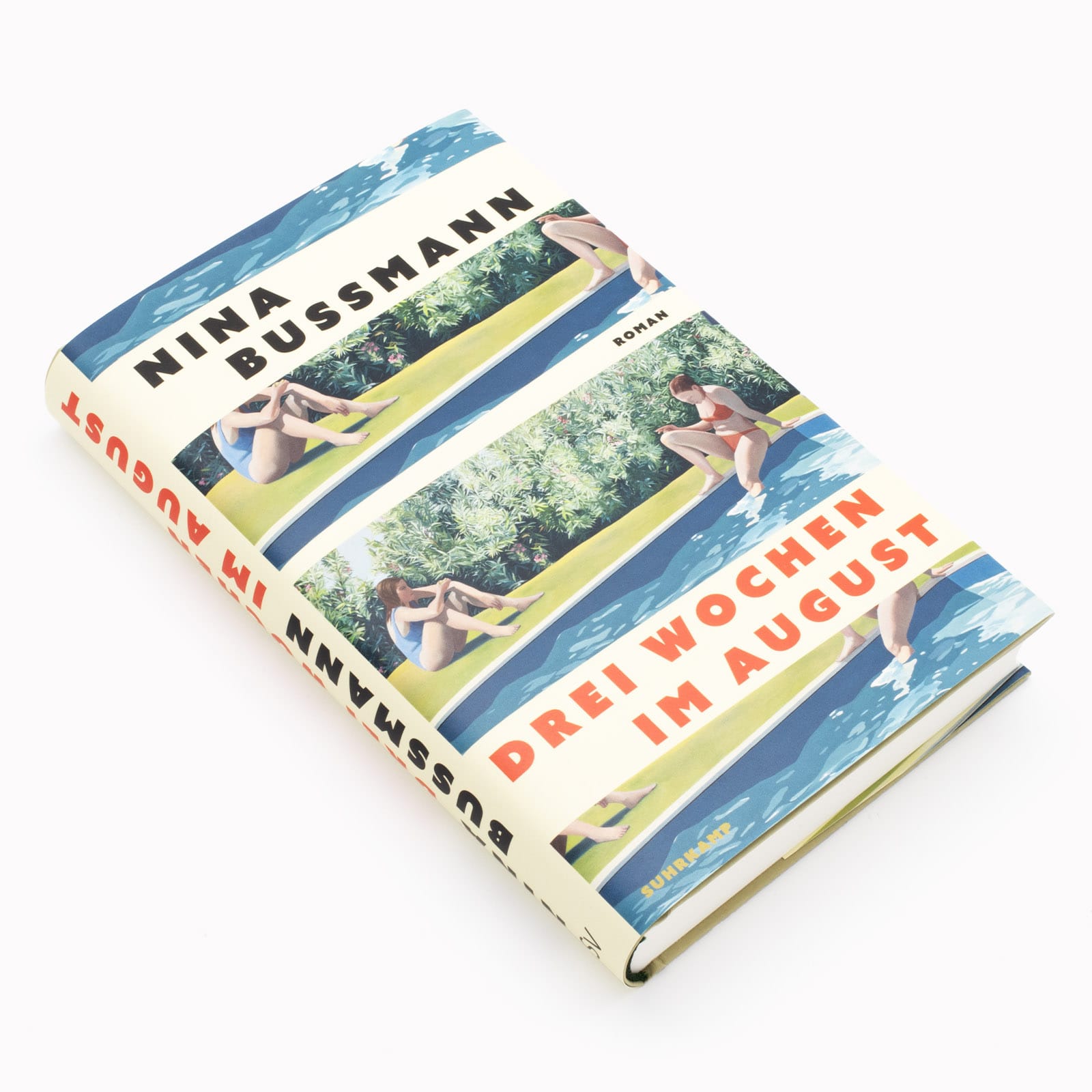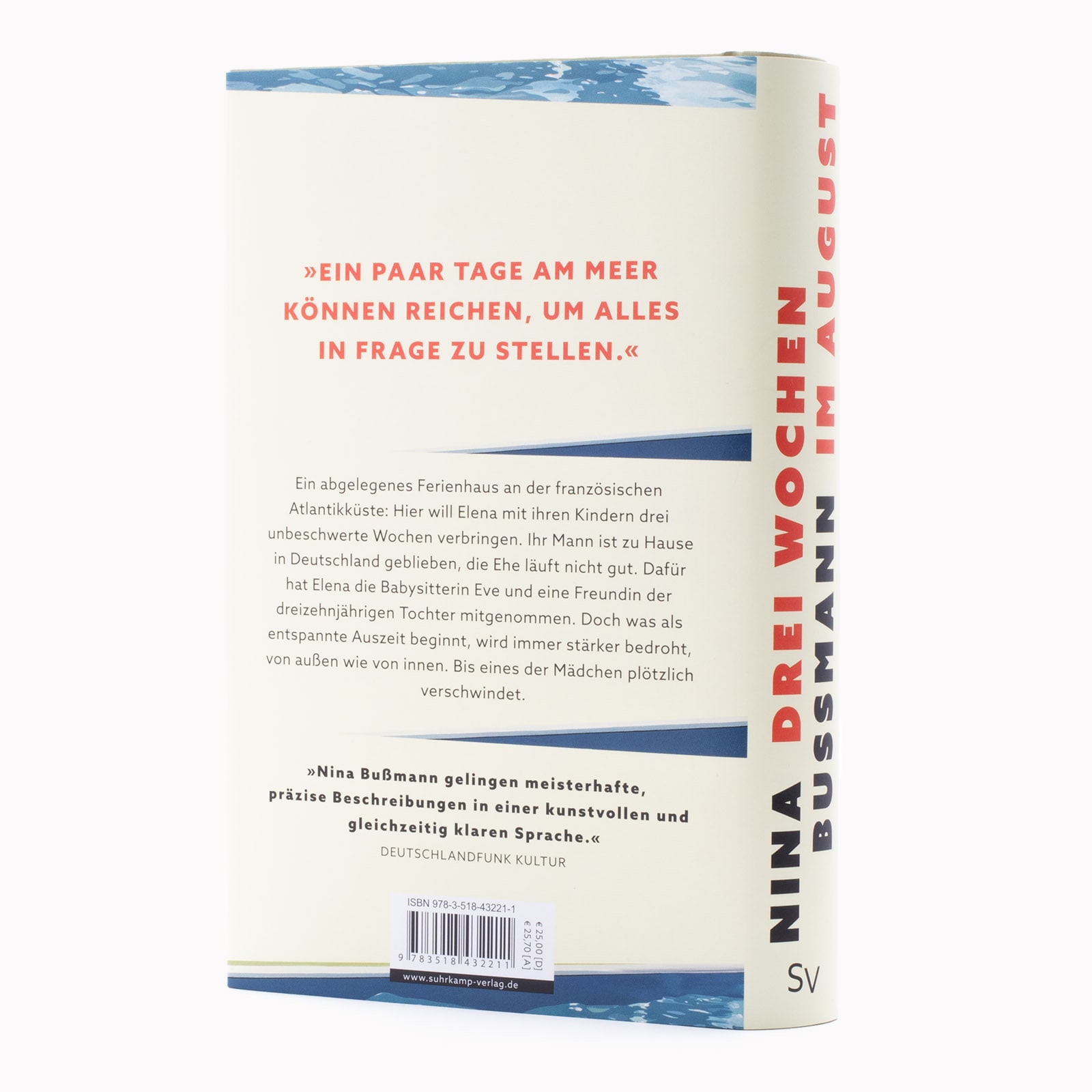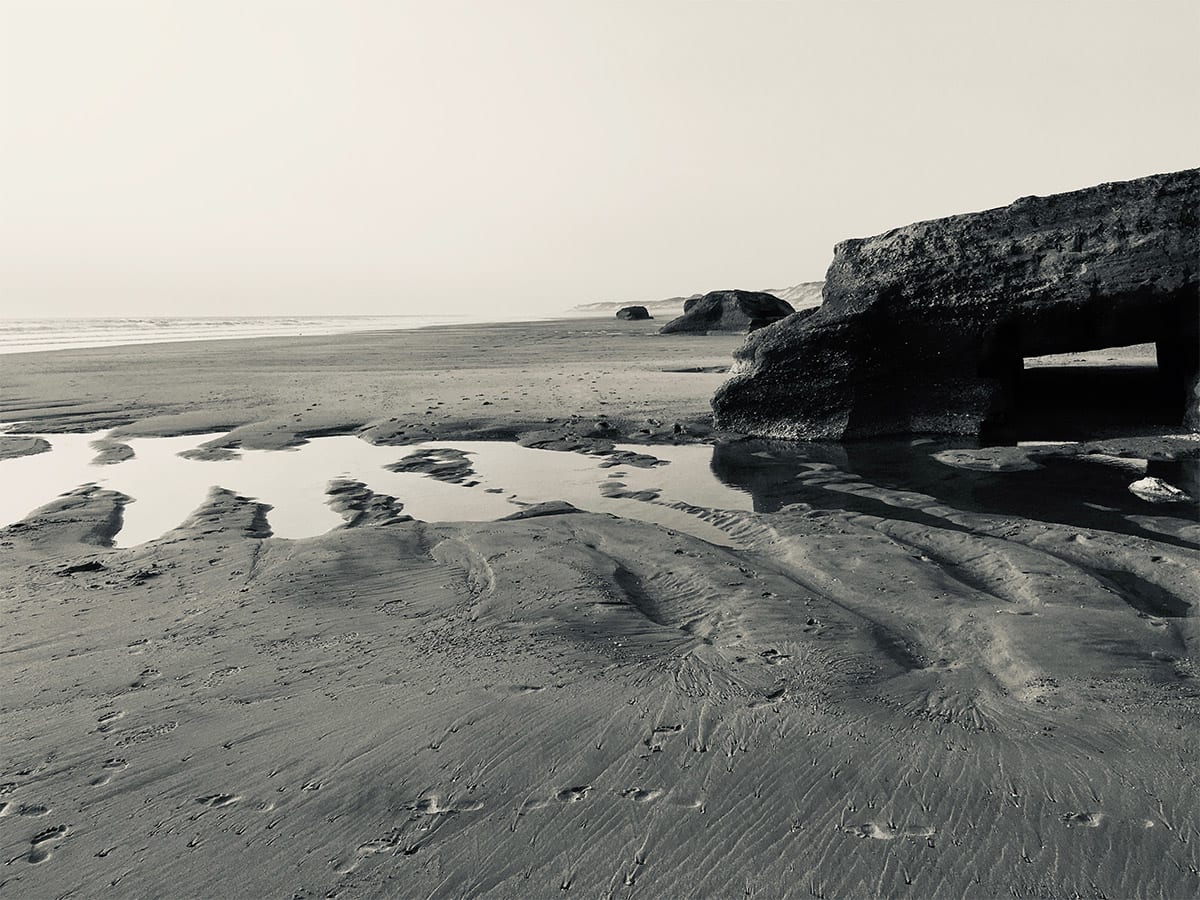
Q&A with Nina Bußmann about Three Weeks in August
News30.03.2025

The secluded holiday house where the two women in your novel spend the summer with three children is located on the Atlantic coast in southwest France. What is your connection to this landscape?
I’ve gone on holidays there a couple of times, back when I was the same age as the girls in the novel. Everything was different, starting with where we stayed: our accommodation was not secluded in the slightest. I remember stretched-out time and landscapes that never stopped, and fear and desire at the power of the waves and the invisible currents, boredom and euphoria.
Heat, drought, forest fires – over the course of the novel, nature takes on an increasing sense of menace. What role does climate change play in Three Weeks in August?
If a novel is supposed to be about the present, then I don’t really see how it can leave environmental damage out of the story. I neither wanted nor am I able to write a climate change novel. The book doesn’t tell you anything you couldn’t read in the news. We know the problems. The ecological crisis determines the stage of the story and limits the radius within which the characters can move, as it does in real life. But it isn’t the actual material. It’s about private stuff, tiny things, and about a longing for beauty. The evacuation zone begins just beyond the narrated region, right up to the end, the characters never manage to make a connection with their own lives. At one point, there was a section in which Eve and Elias head into the danger zone to help out. In the editing process, we decided to cut it. Precisely because the sense of menace is already there, real and powerful. By blocking it out, that threat is recognised.

What made you want to write the story from the perspective of Elena and Eve?
Because both of them are right.
The meals play a big role in Three Weeks in August. What smells and tastes do you connect with your novel?
I would say that physical sensations play a big role. The characters are stuck in their heads and looking for ways to feel what’s going on below their necks. They go dancing and swimming. But it’s also true that they are obsessed with food. Food is less complicated than sex. The meals in the evening are the ritual that is supposed to bring everyone together. But it’s also a place where power dynamics and morals are played out. But I also have the smells of the landscape in my mind, maritime pines and walls wet with salt.
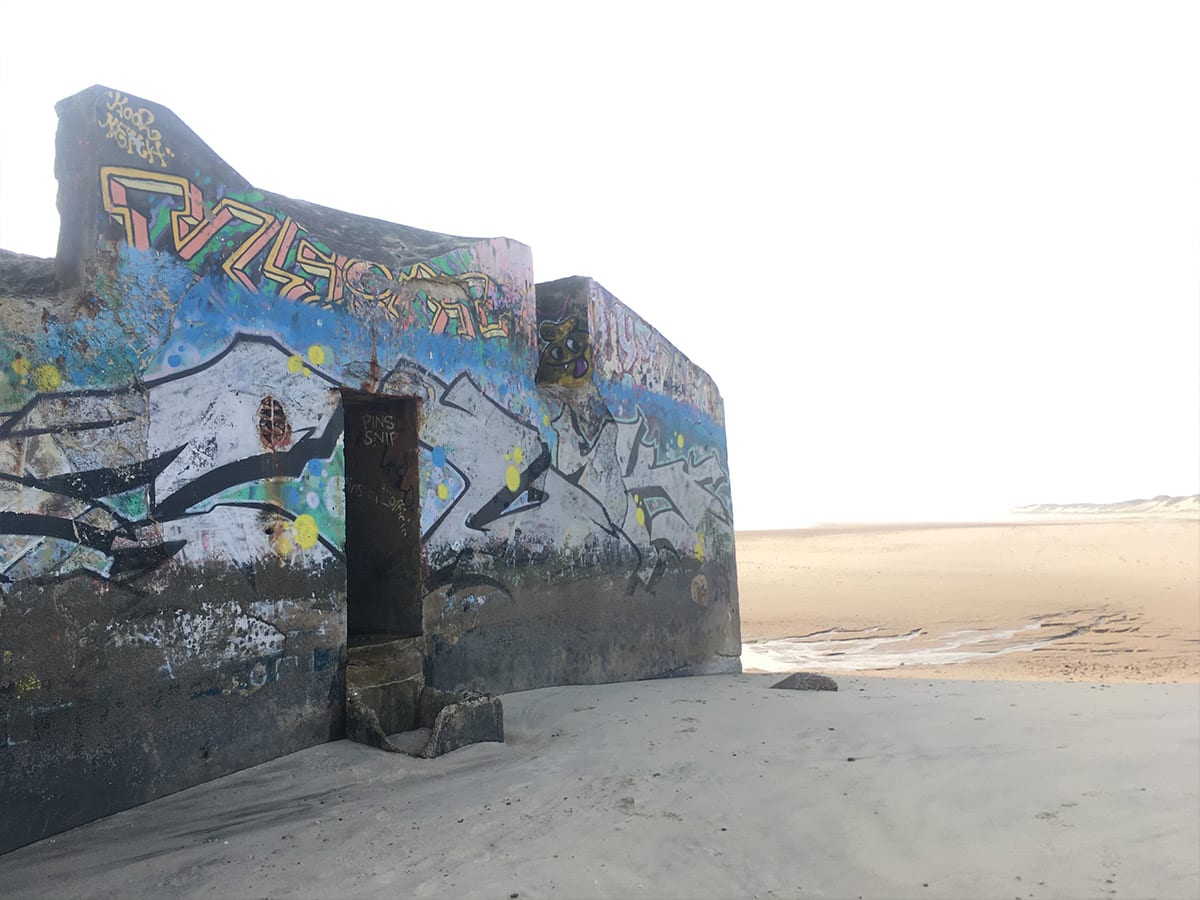
Which character from Three Weeks in August would you like to have dinner with, and why?
I’d be really interested to know what Linn has to say about the whole thing. But I’d probably rather have an ice cream with her, or something else you can walk around with.
Three Weeks in August is your fourth novel. How did you come up with the idea for the story, and how long did you then work on it?
Around three years. More or less at the beginning, there was a woman who carries out paid care work for another woman. The relation between intimacy and professionalism, a stranger who looks in on private things. And the puzzle of youth. That’s what ultimately interested me the most.
I’ve gone on holidays there a couple of times, back when I was the same age as the girls in the novel. Everything was different, starting with where we stayed: our accommodation was not secluded in the slightest. I remember stretched-out time and landscapes that never stopped, and fear and desire at the power of the waves and the invisible currents, boredom and euphoria.
Heat, drought, forest fires – over the course of the novel, nature takes on an increasing sense of menace. What role does climate change play in Three Weeks in August?
If a novel is supposed to be about the present, then I don’t really see how it can leave environmental damage out of the story. I neither wanted nor am I able to write a climate change novel. The book doesn’t tell you anything you couldn’t read in the news. We know the problems. The ecological crisis determines the stage of the story and limits the radius within which the characters can move, as it does in real life. But it isn’t the actual material. It’s about private stuff, tiny things, and about a longing for beauty. The evacuation zone begins just beyond the narrated region, right up to the end, the characters never manage to make a connection with their own lives. At one point, there was a section in which Eve and Elias head into the danger zone to help out. In the editing process, we decided to cut it. Precisely because the sense of menace is already there, real and powerful. By blocking it out, that threat is recognised.
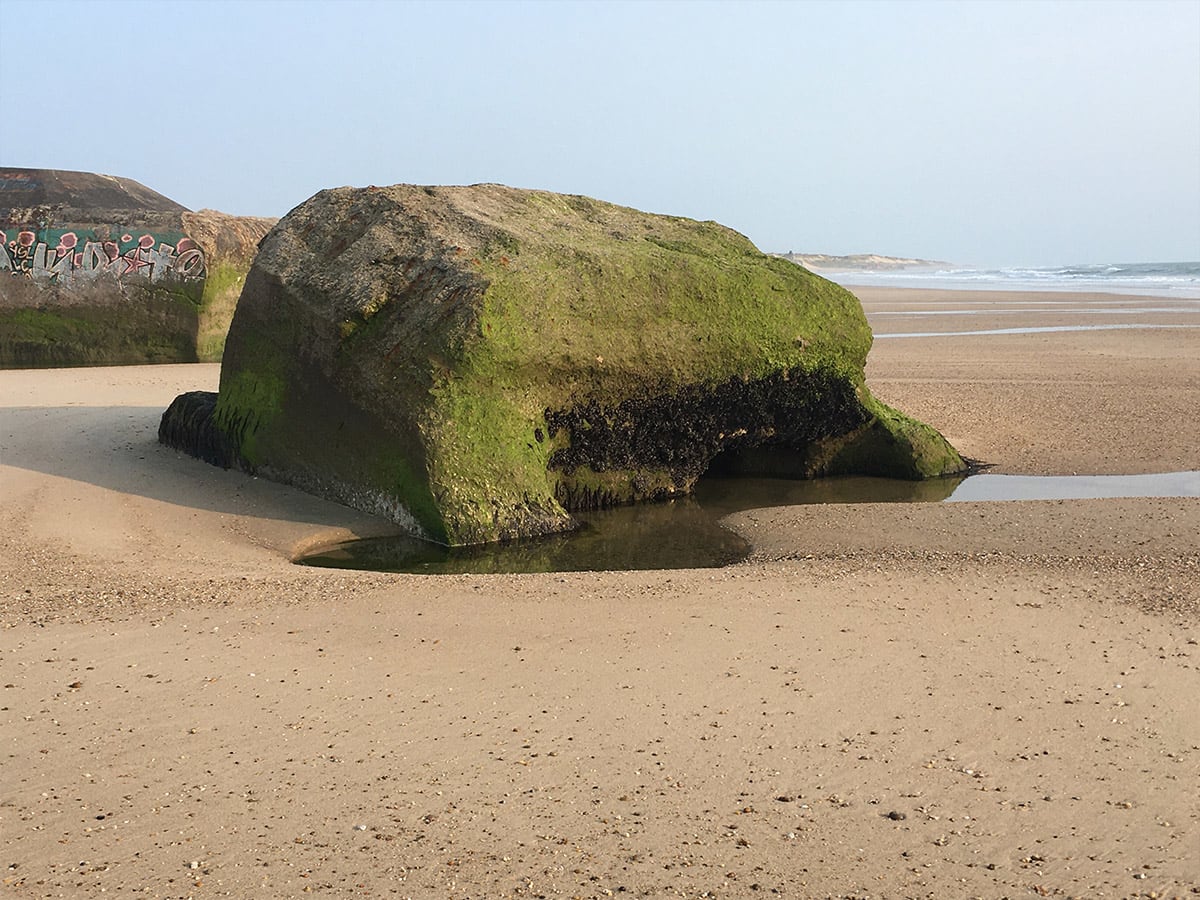

What made you want to write the story from the perspective of Elena and Eve?
Because both of them are right.
The meals play a big role in Three Weeks in August. What smells and tastes do you connect with your novel?
I would say that physical sensations play a big role. The characters are stuck in their heads and looking for ways to feel what’s going on below their necks. They go dancing and swimming. But it’s also true that they are obsessed with food. Food is less complicated than sex. The meals in the evening are the ritual that is supposed to bring everyone together. But it’s also a place where power dynamics and morals are played out. But I also have the smells of the landscape in my mind, maritime pines and walls wet with salt.
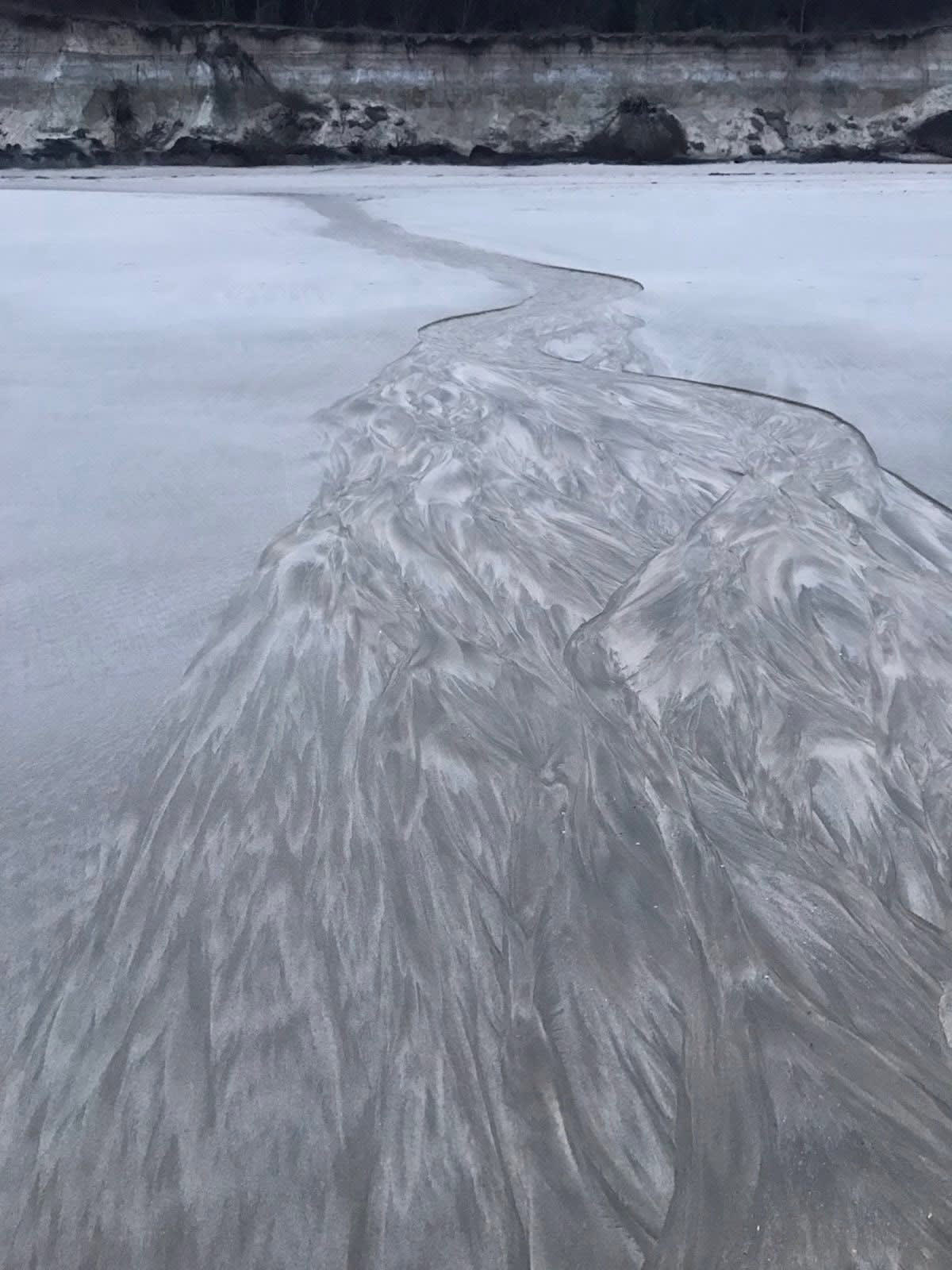
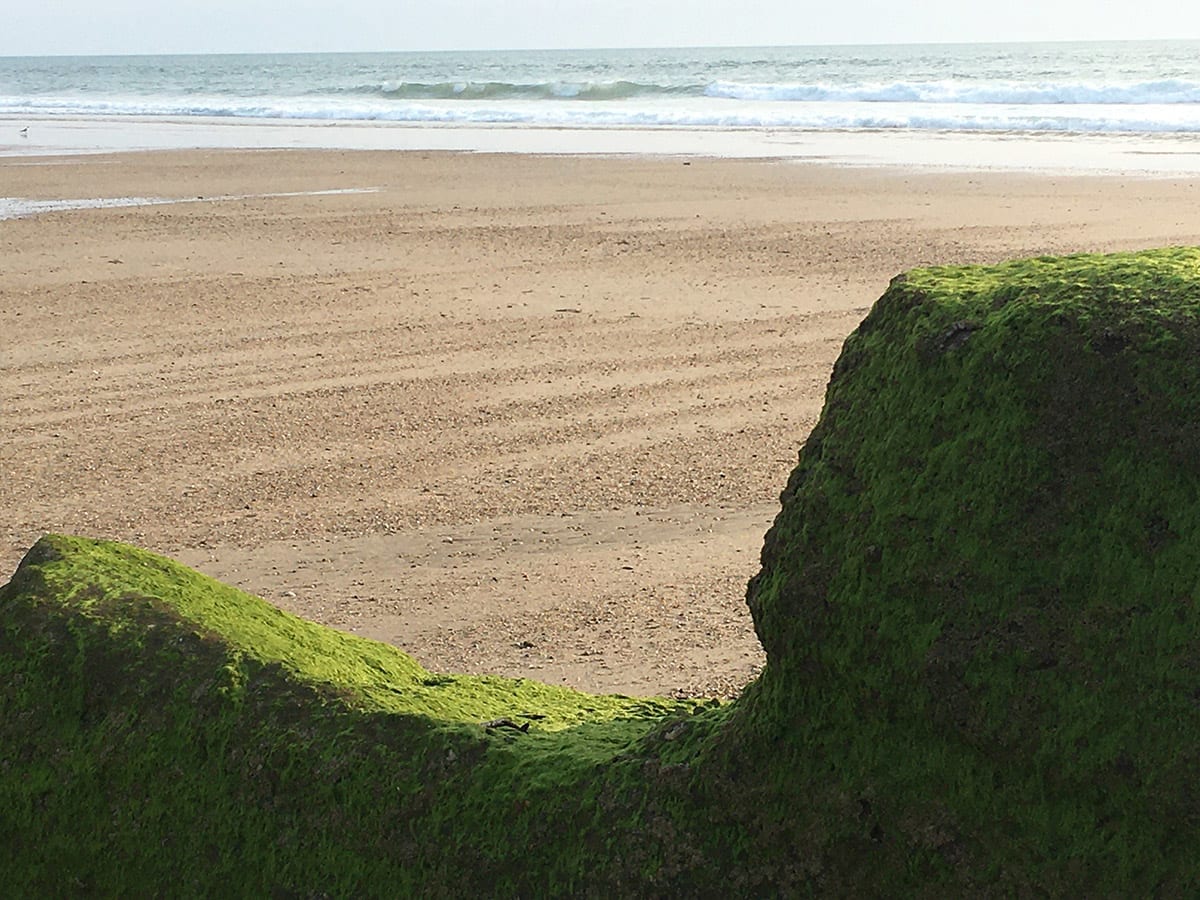

Which character from Three Weeks in August would you like to have dinner with, and why?
I’d be really interested to know what Linn has to say about the whole thing. But I’d probably rather have an ice cream with her, or something else you can walk around with.
Three Weeks in August is your fourth novel. How did you come up with the idea for the story, and how long did you then work on it?
Around three years. More or less at the beginning, there was a woman who carries out paid care work for another woman. The relation between intimacy and professionalism, a stranger who looks in on private things. And the puzzle of youth. That’s what ultimately interested me the most.
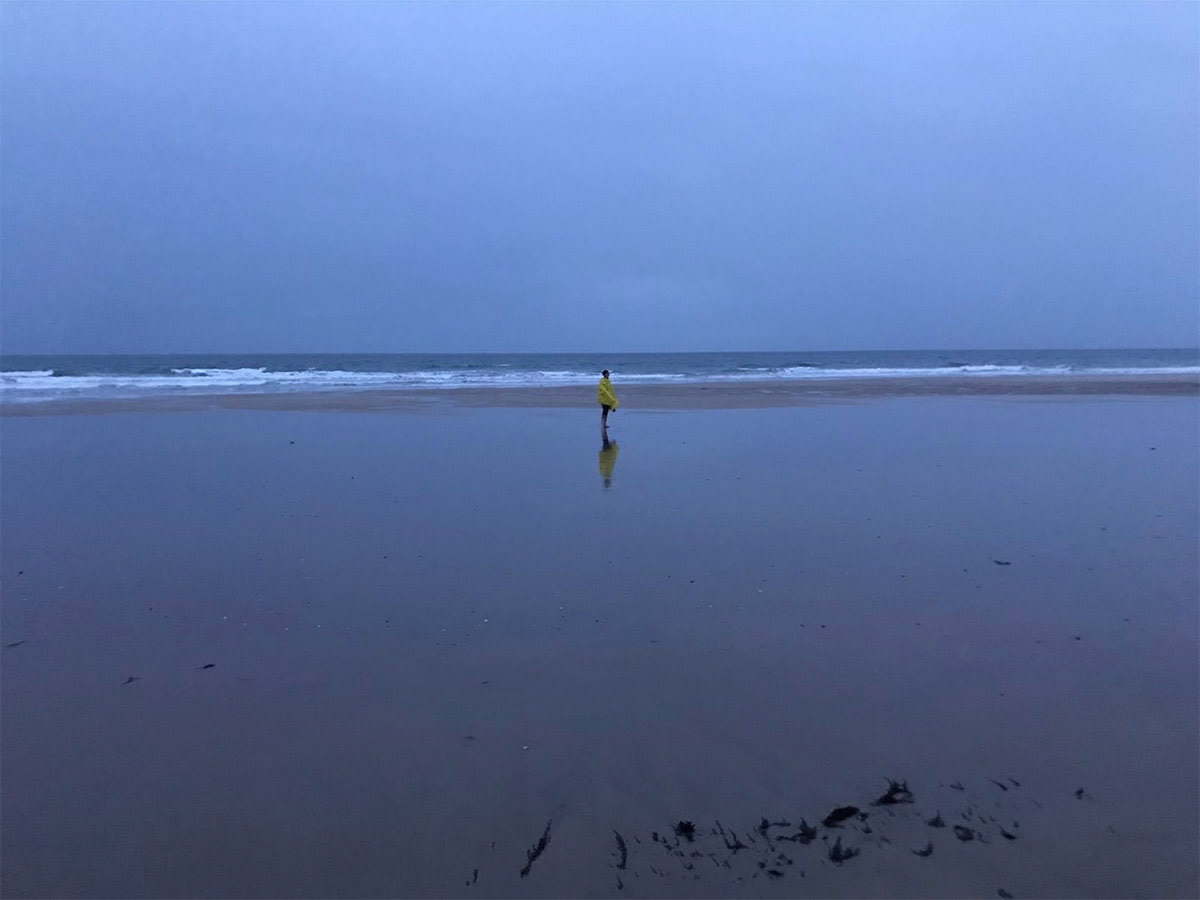
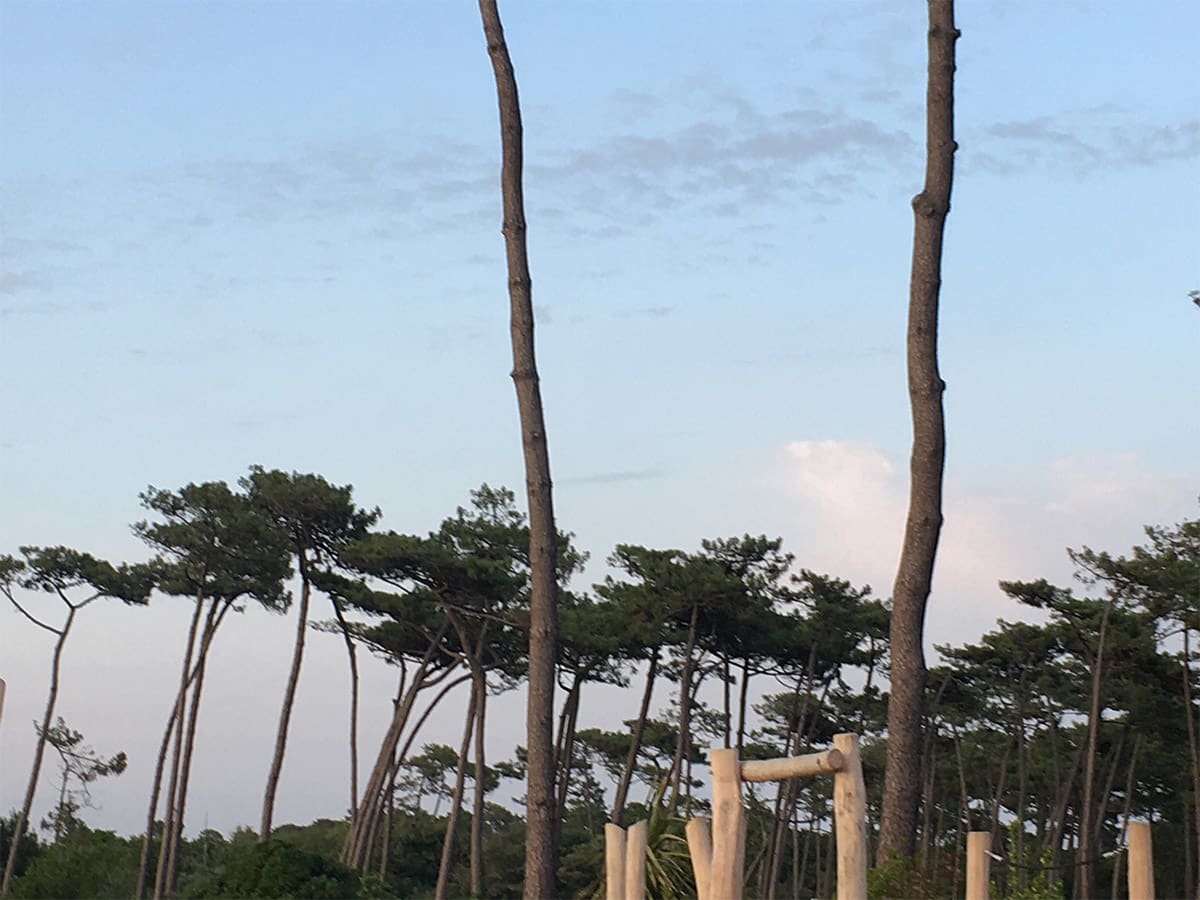
Alle Fotos © Nina Bußmann
